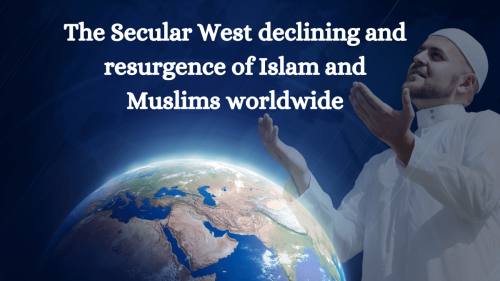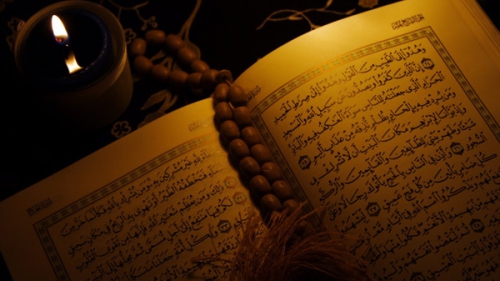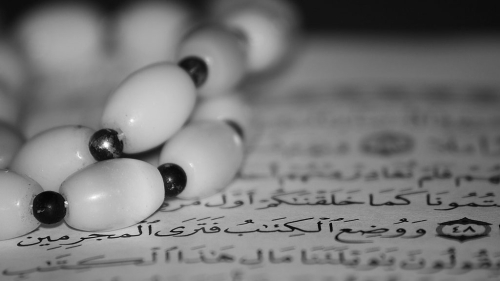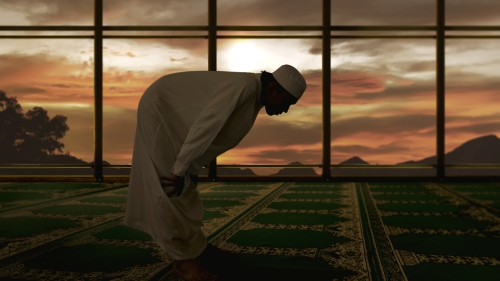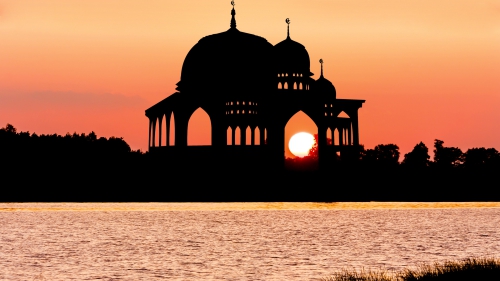Rampant Plagiarism

Plagiarism is generally defined as “presenting someone else’s work or ideas as your own, with or without their consent, by incorporating it into your work without full acknowledgement. All published and unpublished material, whether in manuscript, printed or electronic form, is covered under this definition.”[i] Plagiarism varies in kind, severity, and scope.
Plagiarism is regarded as a form of academic dishonesty and cheating, and a serious breach of scholarly ethics. It may result in a number of punishments, such as penalties, fines, suspension, and even expulsion from college, university, and work. In some extreme cases, in places where plagiarism is considered a crime, imprisonment is also an option.
This is so on the grounds that plagiarism represents a degree of theft, whereby a person’s intellectual property is misappropriated and the thief is set to benefit therefrom.
Moreover, he who cheats in academia attains a false reputation, attesting to his purported knowledge and abilities. Based on that reputation, a person then serves society and contributes to its development. But if his position and assignments are by virtue of the credentials he has not genuinely earned, he may become a source of hazard to himself and others.
Lastly, in securing unfairly his qualifications, a person loses, or seriously damages, his integrity. It is unlikely that he could be fully trusted – or that he himself could fully recover - again. That way, an aura of suspicion and mistrust is easily generated. It spreads like wildfire and affects all levels of the corporate and governmental institutional presence.
Let’s just remember the nature and consequences of the recent Malaysian scandal linked to the use of bogus and unaccredited degrees by several politicians in the now-ruling Pakatan Harapan coalition. Whether that was the whole story or just the visible portion of a much bigger problem, is hard to know now. Maybe time will tell. But one thing is certain: plagiarism with all its forms breeds the causes of all vice, dishonesty, and corruption.
Civilizational Plagiarism
However, the issue of battling plagiarism should extend beyond the realms of academia and education. It ought to cover other realms as well, wherever anybody’s not only work and ideas, but also any sort of contribution and influence, could be stolen and used without proper acknowledgment.
Indeed, curing plagiarism should cover the whole life with all its cultural and civilizational manifestations. This will be for the benefit of the entire world, besides the individuals associated with such contributions and influences.
For example, it could be argued that plagiarism of the highest order, both individual and institutional, was of the factors responsible for making Islamic civilization as much scantily as inappropriately represented in the West. Even though Western civilization as we know it would not exist today without the impact of Islamic culture and civilization, the West and much of the rest still struggle to acknowledge and live with the obvious.
Needless to say that such an attitude brings no good to anybody. It only begets problems from which, in the long run, nobody obtains any benefits. On top of those problems are ubiquitous Islamophobia, lack of authentic civilizational dialogues, and lack of integration.
Thus, the period of Islamic civilizational glory, which bordered and closely interacted with much of the West, is called in the West the Dark Ages or the medieval period. The confined condition of the West and its societies has thus been generalized and globalized. It has been imposed on the global consciousness, for the West to the westerners was the centre of the world and their models and values a benchmark.
Such a misstep was committed partly due to the well-known Western scientific arrogance, and partly due to their equally-known cultural ignorance. Religious animosity and national snobbery – that is, an excessive religionization of politics and a blinded politicization of religion - are to be blamed as well.
This interpretation gives emphasis only to the Greeks and the Renaissance, and what follows afterwards. The vast period between the two civilizations is recognized as an abyss and barrenness, hence the Dark Ages. That automatically negates the existence of Islamic Civilization.
But the problem is that this view creates what Professor Salim al-Hassani calls “the missing history of Europe,” an amnesia of approximately one thousand years in the European mind. Names like Aristotle and Newton are household names but people do not know many great scientists or engineers between the two periods and civilizations which the two great minds represent: the Greeks and the Renaissance, followed by the Enlightenment (Professor Salim al-Hassani).
Modern Western civilization could not arise out of nothing, or out of a sterile set of circumstances. That would be a miracle, whereas the last thing the modern Western man is ready to accept is supernatural miracles.
Undeniably, it was Muslims and Islamic culture and civilization that filled the glaring gap. It was them who were the saviors and main protagonists in enriching the missing – and currently distorted – history of Europe.
Civilization belongs neither to the East, nor the West, and is owned neither by Europeans, nor Arabs, or Persians. Civilization is the greatest heavenly gift to mankind. It shifts from one socio-politico-economic framework to another. It is color, geography, and ethnicity-blind.
Civilization ceases in a milieu where the causes and dynamics that exerted a pull on it likewise ceased, and in turn is drawn towards a new milieu that possesses the necessary intricacies and wherewithal. Civilization thrives only where the essential factors and causes, which can be generated only by man, thrive. Localizing and privatizing civilization is a crime against man’s humanness and the order of nature. It is a crime against civilization itself. Owing primarily to this, Samuel Huntington’s theory of the clash of civilizations remains highly controversial, dividing opinion like no other.
Robert Briffault wrote in the “Making of Humanity:” “It was under the influence of the Arabs and Moorish revival of culture and not in the 15th century, that a real renaissance took place. Spain, not Italy, was the cradle of the rebirth of Europe. After steadily sinking lower and lower into barbarism, it had reached the darkest depths of ignorance and degradation when cities of the Saracenic world: Baghdad, Cairo, Cordova, and Toledo, were growing centers of civilization and intellectual activity. It was there that the new life arose which was to grow into new phase of human evolution.”
The same author also said: “It is highly probable that but for the Arabs, modern European civilization would never have arisen at all; it is absolutely certain that but for them, it would not have assumed that character which has enabled it to transcend all previous phases of evolution.”
But the truth was not meant to be presented as such to the world. There was surely a hidden agenda behind the whole thing. However, the West after all could not do without those Muslim scientists and their scientific legacies as have no contemporary equivalents in the West. Thus, the only way was rampant plagiarism, bias and distortion. It was a snatch-and-run tactic.
Accordingly, John William Draper said in the “Intellectual Development of Europe:” “I have to deplore the systematic manner in which the literature of Europe has continued to put out of sight our obligations to the Muhammadans. Surely they cannot be much longer hidden. Injustice founded on religious rancor and national conceit cannot be perpetuated forever. The Arab has left his intellectual impress on Europe. He has indelibly written it on the heavens as any one may see who reads the names of the stars on a common celestial globe.”
This may explain why Muslim scientists have been systematically given Latinized names. I always wondered, and never got it, why Ibn Sina became Avicenna, al-Farabi Alpharabius, Ibn Rushd Averroes, al-Khawarizmi Alghorismus and Algoritmi, al-Kindi Alkindus, Ibn Tufayl Abentophal, Jabir b. Hayyan Geber, al-Idrisi Dreses, al-Ghazzali Algazel, Ibn Bajja Avempace, al-Juzjani Sorsanus, Muhammad al-Baghdadi Machometus Bagdedinus, Ibn Zuhr Avenzoar, etc.
The reason was to camouflage the identities and tone down the true legacies of those towering personalities. Their social, cultural and religious backgrounds were to be muddled in equal measure. They were to be projected as mere translators and preservers of the Greek philosophy until the emergence of the Western genius. They were to be somehow portrayed as part, yet servants, of the former, unable to produce on their own anything authentically new.
So gigantic and invaluable was the Greek legacy that it cast a shadow over everything Muslims were able to offer. With that, Muslim philosophers and scientists were likewise to be rendered no more than the docile harbingers, servants, and great beneficiaries of the eventual activation of the Western intellectual brilliance.
Apart from plagiarism, the misdemeanor of concealing and meddling with identities was also perpetrated. It follows that Latinising the names was only the tip of the iceberg of Latinising, together with suppressing, the legacies.
Normally what is said about the practice of Latinising Muslim scientists’ names - like “to emulate Latin authors,” “to present a more impressive image,” and “to produce the names which are internationally consistent” – just does not hold water. They were so great and influential that they needed to emulate nobody. Moreover, they were able to carve niches for themselves and their international reputations were destined to come about sooner or later.
In passing, Latin and Greek were the official languages of the Roman Empire, and especially Latin became the dominant language of science up to the mid-17th century.
Spiritual Plagiarism
Perhaps most dangerous and most devastating is what could be dubbed a spiritual plagiarism.
This type of plagiarism connotes the appropriation and enjoyment of Almighty Allah’s creation, blessings, and signs, and the utilization of them for one’s egotistical and acquisitive ends, without acknowledging at any stage of the process(es) their true origin, character, and purpose. The problem becomes severer when the same creation, blessings, and signs of Allah are utilized for creating the cultural and civilizational constituents of man, which are then staged as exclusively human achievements, set to serve but the ungodly interests of man.
Islam teaches that everything in the physical and metaphysical realms of existence is the creation of Allah, belonging only to Him. Man: his life, existential purpose and talents, are included. In addition, all the gains and blessings that man enjoys at any stage of his life mission, are Allah’s too. They are portents of Allah’s perpetual love, compassion, and care.
Islam also teaches that it is Allah only who creates, in the sense that He only can bring things into existence out of nonexistence and nothingness (ex nihilo). What man can do, despite his status as the vicegerent on earth and his remarkable abilities, is just to use, reuse, process, employ, assemble, construct, engineer, manipulate, etc., what has already been created and has been entrusted to him. Man is not in a position to create - yet do - anything on his own and without the providence as well as authorization of his Creator.
In other words, man cannot create life; he can only manipulate it. Even when he does so, man cannot think outside the box. He cannot think in terms other than the already created patterns, examples, and materials.
Nor can man originate anything new, which is without prior similitude. Man is an ordained and needy junkie, a penurious and niggardly consumer, and always second best. He by no means can become a true creator, or originator. Acts of creation are ascribed to him only metaphorically.
Accordingly, when one carefully examines man’s claimed feats and masterpieces in art, architecture, literature, entertainment, engineering, and the other cultural and civilizational fields where man is deified and God anthropomorphized or discarded, one cannot but feel sorry for those who have forsaken the original for the banal and plagiarized, the authentic for the counterfeit, the wholesome for the sordid, and the magnificent for the abhorrent and often outright ugly.
Those “masterpieces” are not by any stretch of the imagination the testimonies of the modern nihilistic and hedonistic man’s greatness or success. On the contrary, they are unmistaken signs of his smallness, inconsequentiality, and existential failure.
In Islamic civilization it is only Almighty Allah who is glorified. That resulted, for instance, in a culture of omitting the names of architects and artists in most of their works, for those works were not exclusively about them, but about higher sets of ideals and a more profound spiritual order of things and experiences. The same goes for a great many other aspects of Islamic culture and civilization. However, the situation in modern Western civilization is a polar opposite: it is man that is placed on a pedestal and glorified, as a corollary of Renaissance humanism that functioned as a precursor to modern civilization.
Allah reminds: “O mankind! It is you who stands in need of Allah, and it is Allah who is free of all wants (Self-sufficient), worthy of all praise” (Fatir, 15).
That is why apart from being al-Khaliq (the Creator ex nihilo), al-Musawwir (the Fashioner), al-Fatir (the Bringer into Existence), Allah is also al-Badi’ and al-Bari’ both of which lay emphasis on Him being the unique Originator of everything without following any prior model, or unlike any similarity to anything that ever existed.
Allah challenges mankind in the Qur’an: “This is Allah’s creation; now, show Me what is there that others (gods) besides Him have created? In fact the wrongdoers are in manifest error.” (Luqman, 11)
“O humanity! A lesson is set forth, so listen to it carefully: those idols you invoke besides Allah can never create so much as a fly, even if they all were to come together for that. And if a fly were to snatch anything away from them, they cannot even retrieve it from the fly. How powerless are those who invoke and those invoked!” (al-Hajj, 73).
“…When Allah is the One Who created you and that which you have made?” (al-Saffat, 96).
“…..Or have they attributed to Allah partners who created like His creation so that the creation (of each) seemed similar to them?’ Say: ‘Allah is the Creator of all things, and He is the One, the Prevailing’” (al-Ra’d 16).
In Islam, one of the greatest virtues is gratefulness. To be grateful is to acknowledge who is who in the grandest scheme of things and the entire creation, giving then everything its due. It also means to be appreciative of everything the Creator and Sustainer of life does for man and for the rest of creation, tapping His blessings responsibly and wisely.
Put differently, to be grateful and ever ready to acknowledge and appreciate favors is tantamount to being Muslim, for submission to Allah, in essence, signifies the pinnacle of appreciation and gratitude. Just as disbelief (kufr) signifies the opposite. It is the Holy Qur’an that employs the word kufr in two renderings, namely, denial of truth and ingratitude (Ibrahim, 7).
As a consequence, using Allah’s favors and blessings without acknowledging Allah as their source, is a serious form of spiritual plagiarism. It is the most problematic one. The predicament is further compounded if the same happens in support of some other equally grave wrongdoings, such as extravagance, haughtiness, self-centerdness, greed, etc.
Examples of Spiritual Plagiarism
For example, an architect plagiarizes when he uses natural and readily available in nature building materials for his buildings without acknowledging Allah as their creator and source. The same applies to engineers, urban planners, landscape architects and the rest of built environment professionals. They should use their well-known penchant for creativity and resourcefulness in finding ways and means to express their acknowledgment and appreciation.
Certainly, an excellent way to do so is to equip themselves with the Islamic tawhidic (Allah’s Oneness) worldview, Islamic general and professional ethics, and to make sure their buildings (products) serve only the ultimate truth and its honorable ways. They should be neither literalists nor symbolists in trying to fulfill the requirement.
Clearly, without Allah and His creations around us as gifts – comprising people’s enormous talents and capacities - those professionals will not be able to do anything of what they normally do. Therefore, it is but natural to recognize the actual system of things and meanings.
Having all this in mind, Koca Mimar Sinan, the chief architect of the Ottoman golden age, once said that architecture is the most difficult profession and he who wants to practice it correctly must be, first of all, pious.
Another example is an artist who plagiarizes by using a segment of Allah’s matchless creation as a source of inspiration, which he then reproduces, partly or completely, without acknowledging Allah as the only Creator and Originator. Undoubtedly, there is no beauty without Allah as the Beautiful and as the source of all earthly and heavenly beauty. Just as there is no goodness, greatness, and kindness without Allah as the Beneficent, the Supreme and the Benignant, and as the source of all ontological decency, distinction, and benevolence.
The case of art, in the broadest sense of the word, is very important, in that religion, morality, and art are inseparable. They commenced to coexist since the divine act of creation. To Alija Izetbegovic, art is the daughter of religion, just as modern science to Henri Bergson is the daughter of astronomy.
Art is the truth, and the truth, in so many ways, is art. They strengthen and render each other more understandable and more appreciable. For art to prosper and reinvigorate itself, it always must go back to the roots of its innate being and authenticity, i.e., faith and spirituality. Plato also said that beauty is the splendor of truth.
It is hardly surprising, therefore, that whenever disoriented or misguided, art is identified with a bohemian and eccentric behavior.
Following the same paradigm, it could be said that an economist plagiarizes if he deals with the theoretical and applied aspects of economics but fails to acknowledge Allah as al-Razzaq and al-Raziq (the ultimate Supplier and Provider) and as al-Malik (the King and the Owner of dominion and all created things and resources).
A jurist or legal expert plagiarizes if he deals with details, theories and applications of law, without acknowledging Allah as the only Lawgiver and the only source of legislative supremacy.
A scholar, or a philosopher plagiarizes when he fails to acknowledge Allah as the Omniscient and All-Knowing, and as the One who is perfect in knowledge and wisdom, according to which there is nobody who can possess knowledge of anything except with His benevolence and leave.
A medical expert plagiarizes if he fails in his scientific undertakings to acknowledge Allah as the only One who heals the sick (medical experts do so only on account of Allah’s will and clemency), and as the One who appointed a cure for every disease.
Experts in humanities and social sciences plagiarize if they in their professional missions fail to acknowledge Allah as the Creator and Master of man and his destiny, endowing him with all his remarkable capabilities, faculties and skills, and as the One who has honored and favored man far above most of Allah’s creation and has made people into nations and tribes with different languages, colors, environs, and cultures so that they could know one another.
Experts in natural sciences plagiarize if they in their scientific assignments fail to acknowledge Allah as the Creator, Cherisher, and Sustainer of nature and its flawless laws, harmony and equilibrium, and as the One on whom every creature depends for its needs and who incessantly creates all things and events and directs as well as controls all affairs in the entire universe, excluding thus the possibility of even slightest accidents, chances, and luck.
All those professionals and experts earn their livelihoods and build their successful careers and reputations within the ambits of their respective specialized and intellectual fields. It goes without saying that in doing so, spurning the prospect of acknowledging and being thankful to the Creator and Sustainer of those specialized fields, disciplines, and careers – and the Creator and Master of people’s own selves - is the most ruinous form of plagiarism. Therefore, all remedial efforts should target it most.
[i] Plagiarism, https://www.ox.ac.uk/students/academic/guidance/skills/plagiarism?wssl=1, accessed on 13 November 2019.
Topics: Muslim Western Relations, Taqwa (God Consciousness), Western World Values: Humility, Manners, Spirituality, Wisdom
Views: 1433
Related Suggestions







